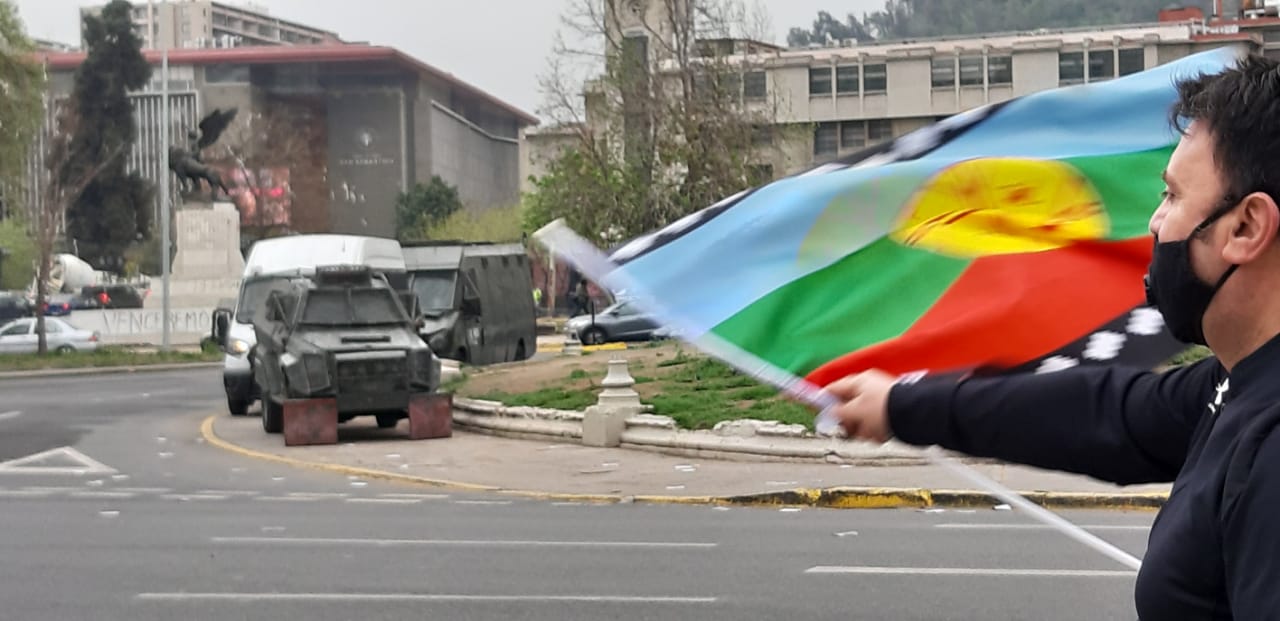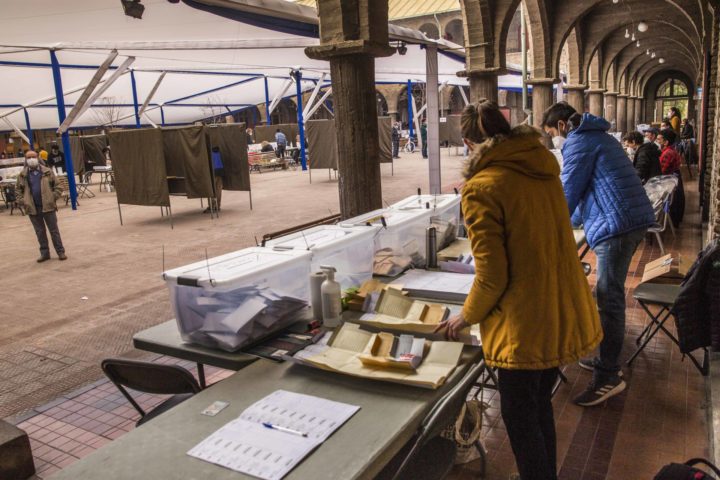The recent defeat of the economic elite and their political allies has installed the people as the protagonists of the immediate future of our country. The 18-0 rebellion and the approval of a new Constitution fuelled the popular triumph, which was consolidated in the recent elections of 15/16 May.
The Frente Amplio-Partido Comunista list together with the independents swept the right wing and the former Concertación. At last we can say that a real left is born in Chile.
The people have clearly indicated that they want no more of the politicians and economists who for forty years were captured by big business and who legislated in their favour. Those servants of the rich who prevented the state from defending the national majority have been condemned to the dustbin of history.
The fun (of the rich) is over and the people have called a halt.
The electoral triumph of 15/16 May has been a categorical rejection of the abuses and cheating of the AFP, the ISAPRES and the infamous collusion of big business that exploits modest consumers and small businesses.
The people also realised that the Labour Code prevents workers from organising and negotiating decent wages, thus allowing business to exploit wage earners without counterweight.
What the Concertación/New Majority was unable to do will now be the task of the new leaders elected on 15/16 May. The people said enough is enough, outraged with the cowardly “measure of the possible” and tired of the Pinochet-Lagos Constitution, which constitutionalised a neo-liberal market economy to allow the richest 1% of the population to appropriate 30% of the wealth, while the poorest 50% take only 2%.
The accumulation of wealth of the economic groups gave them a de facto power in the country with a decisive influence on political life. Thus, the state and the political class have favoured the economic groups by abandoning their task: they do not control big business, they do not regulate it, they do not charge royalties for the rentier exploitation of our natural resources, they facilitate collusion and tax evasion and, furthermore, they have opened the way for them to operate, uncontrolled, in tax havens.

The regime of abuses and inequalities has its origins in the 1980 Constitution, which reduces the role of the state to a mere subsidiary agent of economic initiative. Founded on subsidiarity, the state hands over the concession of our land, rivers and seas to big capital at no cost; it also allows an oligopolistic commercial and financial system that extracts immense surpluses through collusion and deregulation; and, finally, it invented a social policy that has commodified education, health and welfare for direct corporate profit.
The new constituents have the challenging task of democratising the economy, which requires a constitutional text that curbs the power of the 1% and its economic groups. Because economic activity must serve society as a whole, with special priority for workers and small entrepreneurs. And economic democratisation is the material basis for political democratisation.
The electoral triumph of the left in the Constituent Convention, but also the success in several municipalities and even governorships, opens an auspicious way for the people of Chile to win the presidency in November. It is not an easy task, but the political and, above all, cultural change we are experiencing offers hope for a new life for the Chilean family. In order to achieve this objective, it will be necessary for all those political and social organisations committed to a new Constitution, and which are currently dispersed, to join forces in a patriotic manner.










